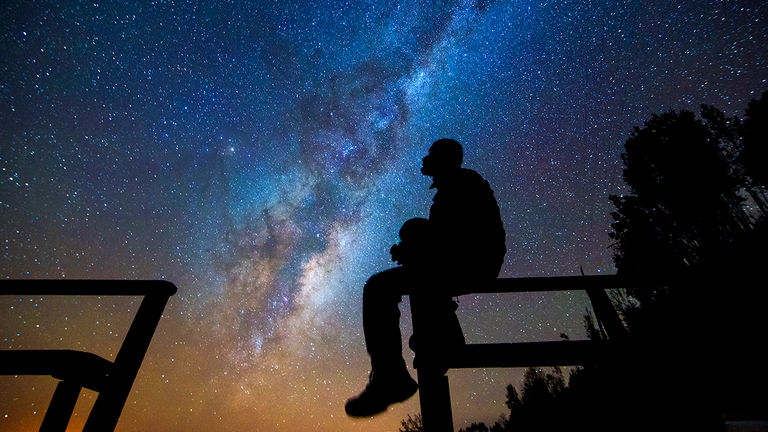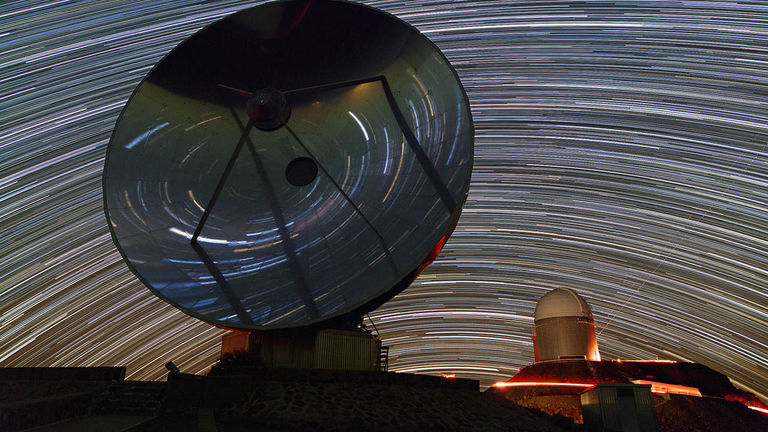Already a trending destination thanks to its diverse landscapes, adventure opportunities and rising foodie scene, Chile is now offering yet another reason to plan a trip soon: Two solar eclipses will be gracing its skies this and next year.
“We’re very fortunate with our solar eclipses for the next few years,” said José Fernández, an astronomer and data analyst at Atacama Large Millimeter Array (ALMA), Chile’s top scientific observatory.
The sheer luck of having two back-to-back eclipses — one in the north of Chile and one in the south — has Chilean suppliers thinking big, crafting unique offerings for the viewings.
Total Eclipse of the North
Dubbed the “Great South American Eclipse,” the first eclipse on Tuesday, July 2, 2019, will carve a path over northern Chile’s Valle de Elqui, a prime astrotourism spot. Crossing into Chile near the coastal city of La Serena, it will reach totality around 4:40 p.m. over the town of Vicuna, lasting roughly two-and-a-half minutes. Superb stargazing is guaranteed after sunset, as there’ll be no moon.
Since the eclipse will be taking place in late afternoon and the region is fairly mountainous, Fernández recommends seeking an elevated look-out spot with a good view of the horizon. Otherwise, watching from a hotel rooftop or other high-rise building in La Serena should do the trick.
 Spot the Milky Way in Chile.
Spot the Milky Way in Chile.
Credit: 2019 SernaturBut staying in the valley has its perks. Vicuna is home to dozens of observatories, and several, such as Mamalluca Observatory and Pangue Observatory, are open for stargazing and telescope observation sessions. Valle de Elqui is also the birthplace of Chilean pisco, and many pisquerias (pisco distilleries) are open for tours and tastings.
Despite its relative obscurity to most international visitors, Valle del Elqui is not lacking in quality accommodations. In Vicuna, check out the quaint Solar de los Madariaga bed-and-breakfast, as well as Terral Hotel & Spa, Hotel Puclaro and ElquiTerra Bed & Breakfast. For a real treat, book a stay at Elqui Domos, a geodesic dome hotel with skylights and its own observatory.
To view the eclipse in style, look no further than high-end operator Upscape’s five-day/four-night Outpost Elqui program. Guests decamp into the wilderness at a luxurious pop-up camp, complete with specially prepared meals and activities such as horseback riding, for the ultimate glamping experience.
There are daily flights to La Serena’s La Florida airport from Santiago. Valle de Elqui is roughly an hour’s drive inland, but as there’s only one road, it’s strongly recommended to arrive a day early to avoid traffic.
 La Silla Observatory is located on the outskirts of Chile’s Atacama Desert.
La Silla Observatory is located on the outskirts of Chile’s Atacama Desert.
Credit: 2019 ESO
Planning Ahead for 2020
On Monday, Dec. 14, 2020, the Lakes District resort town of Pucon will get its own total solar eclipse, passing overhead at 1:03 p.m. and lasting just over two minutes. (The night before, the Geminid meteor shower will also be reaching its peak.)
Sitting in the shadow of Villarrica Volcano, Pucon is a hotbed for adventure tourism, popular with white-water adrenaline junkies and nature lovers seeking beautiful protected lands such as Huerquehue National Park and Huilo Huilo Biological Reserve. The surrounding landscapes are also riddled with natural hot springs, such as the Japanese-themed Termas Geometricas.
Due to the eclipses’ timing, it’ll be easy to have a good view from town. But for the ultimate front-row seat, tour operators such as Sol y Nieve Travel Adventure are offering hikes up Villarrica Volcano to watch the eclipse from the summit (weather and volcanic activity permitting).
Pucon, located 487 miles south of Santiago, does have its own regional airport, but cheaper options fly into nearby Temuco, an hour-and-a-half away. In the resort town are an abundance of great accommodations, such as CasaEstablo, an equestrian-themed boutique outfit, contemporary lakeside retreat AndBeyond Vira Vira and the Bauhaus-inspired Hotel Antumalal.
Despite being more than a year-and-a-half away, tour packages are already available. Cascada Expediciones is offering a five-day/four-night package, with activities including a trip to Terms Geometricas and viewing the eclipse from Pichi Llancahue Glacier. Upscape will also be offering another of its Outpost pop-up programs.
Safety Tips
Viewing a total eclipse without protection has high potential for ocular damage. José Fernández, an astronomer and data analyst at Atacama Large Millimeter Array (ALMA Observatory), Chile’s top scientific observatory, stresses the importance of buying solar eclipse glasses. He also cautions that all the planning in the world can’t trump Mother Nature.
“With the weather, you really never know,” he said.
There is a greater chance of cloud cover for the 2019 eclipse, since the 2020 one will take place during summer (although the Lakes District is notoriously rainy).
But even if there’s bad weather, Fernández says planning a trip to Chile around the eclipse is still worth it.
“You still get the whole experience of seeing different kinds of landscapes,” he said. “The eclipse is the icing on top.”
The Details
Atacama Large Millimeter Array (ALMA Observatory)
www.almaobservatory.org